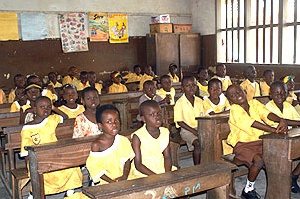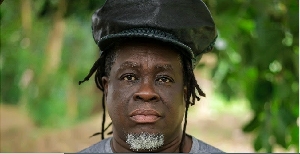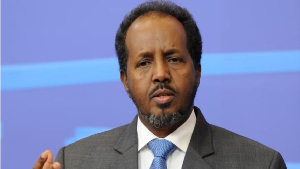Accra, May 7, GNA - Papa Owusu Ankomah, Minister of Education, Science and Sports, on Monday announced that government would introduce a universal ICT education into the basic educational system in September.
He noted that proficiency in ICT was becoming a pre-requisite for securing employment hence government's decision to extend the adoption and application of ICT knowledge to the remotest parts of the country through the ICT for Development programme.
Papa Owusu Ankomah's statement was contained in a speech read on his behalf at the opening of an ICT training workshop for researchers from West and Central Africa.
The Research ICT in Africa (RIA) workshop has brought together 35 participants from Ghana, Nigeria, Benin, Senegal, Cameroon, Burkina Faso, Cote d'Ivoire and South Africa.
RIA is a network of people who research into the use of ICT and its impact in Africa. RIA's objectives are in line with the aspirations of the New Partnership for Africa's Development to harness potentials for development.
Papa Owusu Ankomah noted that progress in the use of ICT could be sustained if backed by an intensive research system within a vibrant network and commended RIA for dedicating themselves to policy research in the ICT field.
"We can bridge the gap between urban and rural communities using ICT," he said.
Professor Emmanuel Owusu Bennoah, Director-General of the Centre for Scientific and Industrial Research (CSIR), expressed concern about the poor use of Information Communication Technology (ICT) in Africa. He said as at March 2007, there were about 33 million Internet users in Africa representing only 3.6 per cent of the continent's total population.
He said Africa accounted for only 15 per cent of the world's mobile telephone subscribers.
Prof. Bennoah also pointed out that Africa was the continent with the lowest circulation of both fixed and mobile phones in the world. He said in spite of the massive growth recorded by Africa in the use of mobile telephone it remains at the bottom of the ladder. Prof. Bennoah said ICTs were shaping every sphere of human endeavour and had become one of the important indices in determining the level of development of countries.
"In 2006-2007, it was only South Africa that came among the best 50 countries in the world in terms of the Networked Readiness Index Ranking," he noted.
He mentioned lack of access, poor ICT infrastructure, high level illiteracy, high cost of service, poor quality service and inadequate investments as some problems hindering high use of ICTs in Africa. Prof. Bennoah therefore called on African countries to put in place necessary infrastructure and policy framework to lead the development of ICTs.
"The trend might continue if the continent does not re-double its efforts in developing strategic ways of developing ICT services, capabilities, utilization and applications," he said. Mr Kwadwo Affram Asiedu, Deputy Minister of Trade, Industry and President's Special Initiatives (PSI), stressing government's commitment to ICT development announced that government was implementing a comprehensive national ICT policy with the objective of facilitating ICT-led socio-economic development.
He noted that the achievement of the Millennium Development Goals and the objectives of government's growth and poverty reduction strategy largely depended on effective use of ICT as a facilitator for development of agri-business, improvement in the efficiencies of our production systems and exploiting niches in the global markets. Dr George Owusu Essegbey, Acting Director of Science and Technology Policy Research Institute (STEPRI), said ICT occupied an important position in priority research areas.
He said: "We must continually assess the extent to which we have realized the very high obligations the new technologies such as ICT impose of us."
General News of Monday, 7 May 2007
Source: GNA













